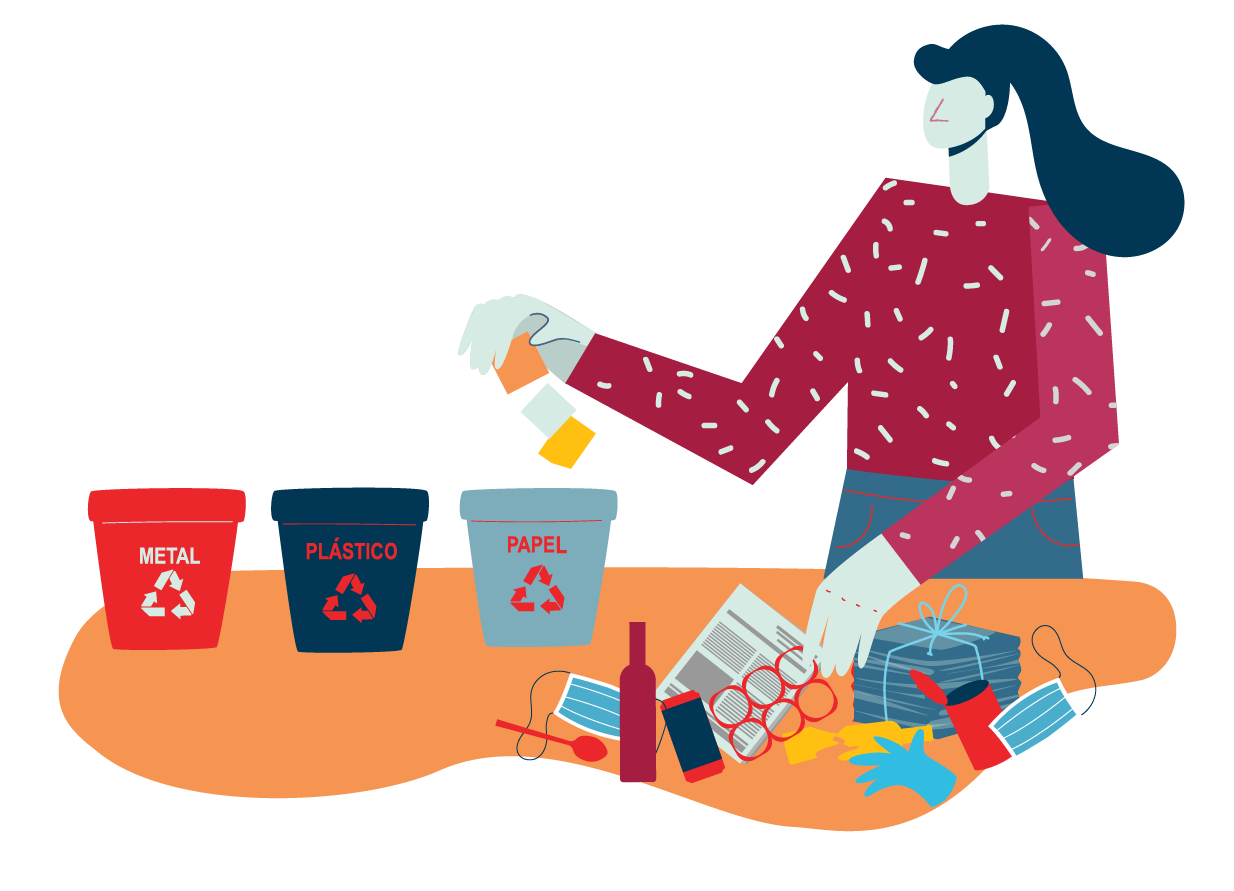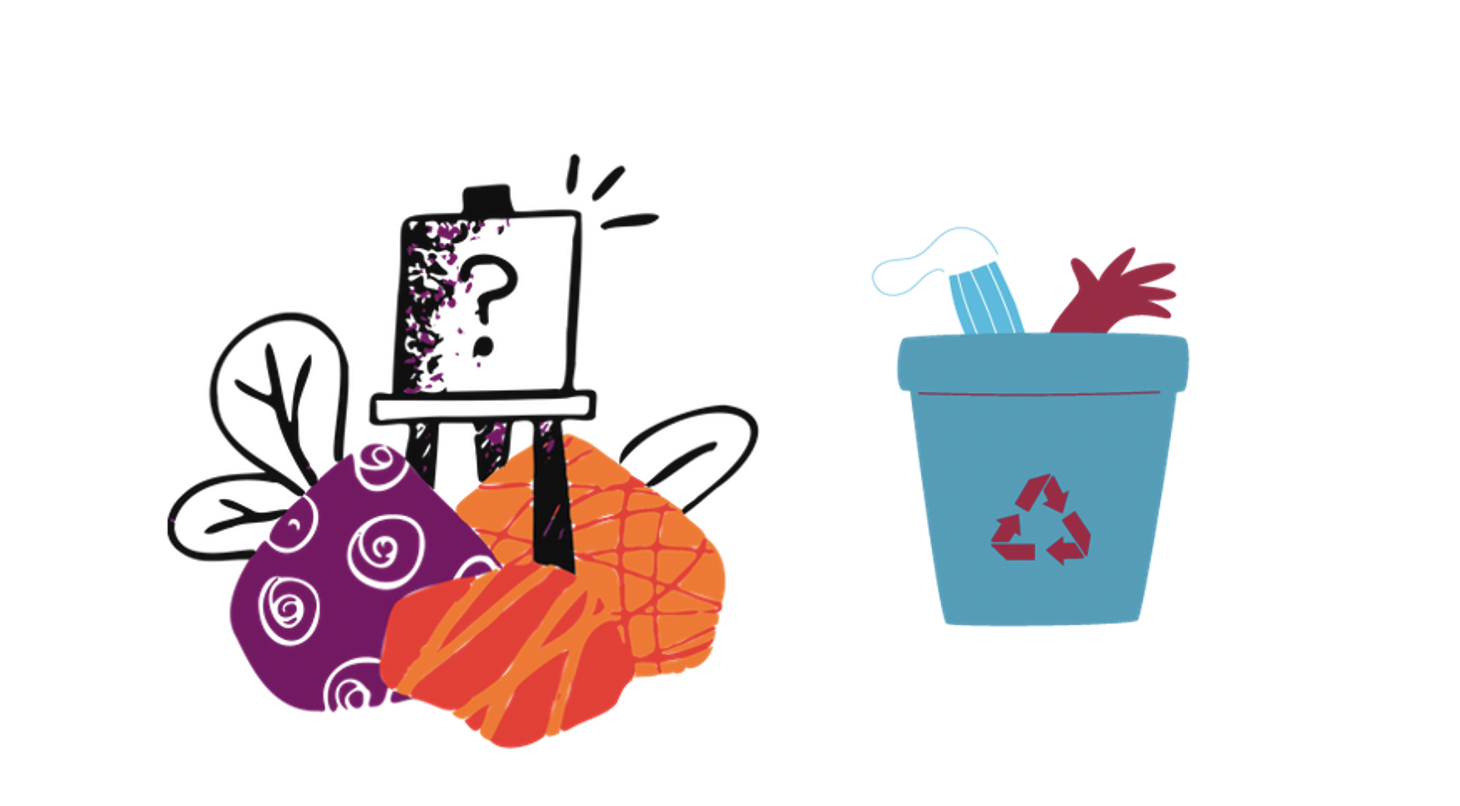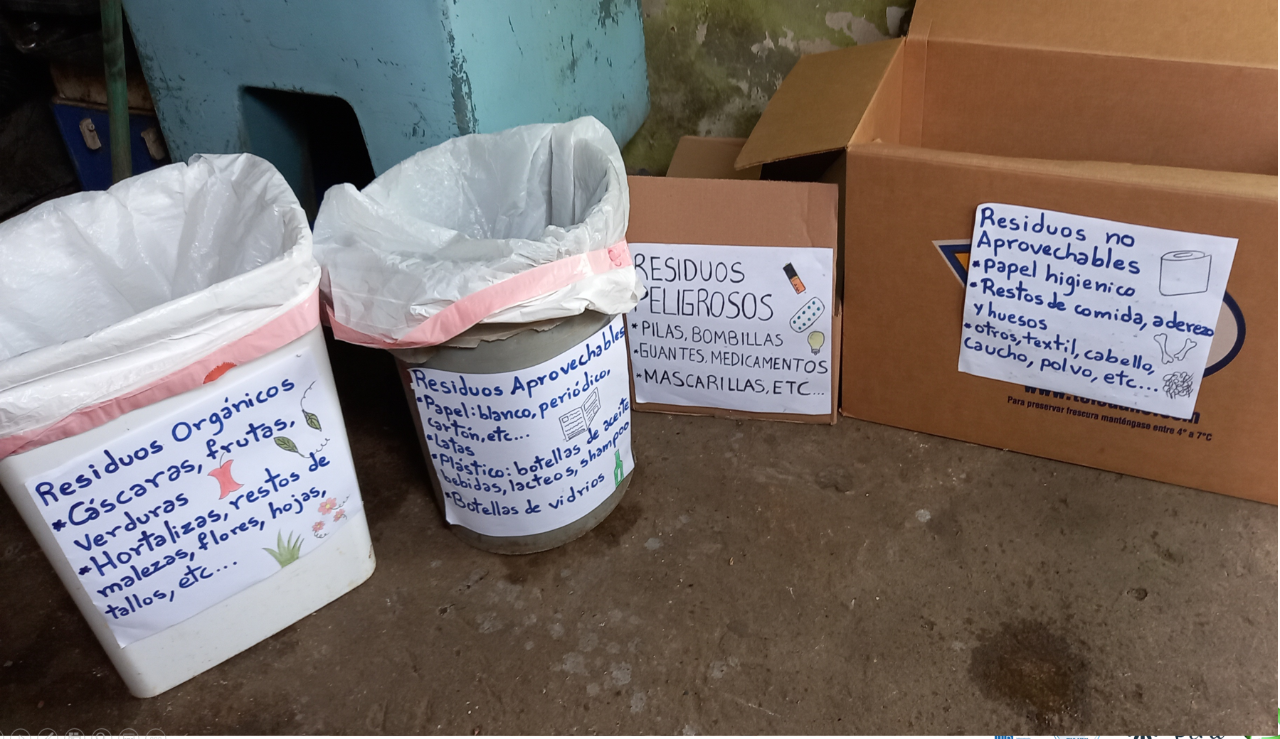Change begins at home
Change begins at home
March 1, 2022
My grandmother used to say: "Before you try to change the world, go around your own house three times". This quote is the starting point of our research journey.
The latest UNDP Accelerator Lab citizen science experiment taught us that 75% of domestic waste is recyclable or reusable. Yet only half of the 136 participants surveyed tend to separate their household waste into recyclables and non-recyclables. This means that the three quarters of our household trash ends up in the landfill when it doesn’t have to (Landfills = uncontrolled dumpsites which harm Panama’s unique biodiversity and contribute significantly to climate change). Our question: "Why does this happen?"
An answer to this question might be found through environmental psychology. Environmental psychology is a scientific branch that explores the interaction between humans and the world around them. Often, its research questions tend to be along the lines of “How can we get people to keep their environment clean?”, “What incentivizes humans to save energy and preserve nature?”, and the like.
The UNDP Accelerator Lab uses environmental psychology to uncover behavioral factors that underly household waste separation (UNDP)
“All behavior is based on processes in people’s minds.”
The Risks, Attitudes, Norms, Abilities and Self-regulation (RANAS) approach to systematic behavior change designs and evaluates behavioral change strategies by focusing on five behavioral factors. Behavioral factors are people’s beliefs, perceptions, feelings and thoughts which influence their behavior. The UNDP Accelerator Lab used this approach to measure and determine which behavioral factors influence household waste separation in Panama.
Desired Behavior: Separation of household waste (into recyclables and non-recyclables).
A specific household survey measured both current behaviors around household waste as well as the underlying behavioral factors of doers and non-doers.
Doer: a household that separates its waste
Non-Doer: a household that does not separate its waste
Doers refers to households who separate their waste into at least two groups (UNDP).
The responses of households who separate waste at home (=doers) were then compared with the responses of household who do not separate waste at home (non-doers). By doing so, the factors that critically steer the waste-separation behavior were identified. These factors are called critical behavioral factors.
What can critical behavioral factors tell you?
There are three critical behavioral factors for household waste separation in Panama: Risk, Attitude and Self-regulation.
- Risk factors represent a person's understanding and awareness of the risk that a behavior or lack of a behavior may bring. "If I don’t separate my household trash, I may harm the environment" is an example of a typical thought of a person who understands and is aware of the environmental risk of not separating waste.
- Attitude refers to the positive or negative stance toward a behavior. If I have a positive stance towards waste separation in my household, a typical mindset might be "it is important to separate trash at home".
- Self-regulation represents the attempt to plan and monitor the behavior, as well as to manage conflicting goals and distracting cues. The level of commitment to waste separation can be indicative of the level of self-regulation.
The RANAS model. (EAWAG).
The identification of these three behavioral factors provides insights that are helpful in developing techniques that can actually lead to people changing their behavior.
The Swiss Federal Institute of Aquatic Sciences and Technologies (EAWAG), the institution that designed the RANAS model, has established a catalog of 36 behavior change techniques that correspond with behavioral factors. An effective catalog of behavior change technique for "waste separation at home" could include:
- Providing clear messages about the environmental, health and safety risks associated with poor household waste management.
- Emphasizing existing beliefs about costs and benefits of household waste separation and rewarding or incentivizing households who do separate waste.
- Prompting public commitment to waste separation through goal setting and barrier removal.
In other parts of the world, UNDP's Accelerator Labs use experimentation and environmental psychology to incentivize household waste separation and develop guidelines for public policy based on their findings.
SDG target 11.6 is aimed at reducing the adverse per capita environmental impact of cities, including by paying special attention to air quality and municipal and other waste management. On December 30, 2021, the Panamanian assembly approved a law obligating cities to establish rules for households to separate waste. The implementation of this law requires evidence-based interventions. To drive waste separation at home, the first step in changing behaviors is understanding its underlying factors. The following step is implementing behavior change strategies. Environmental psychology presents institutions with a portfolio of behavioral change tools which are evidence-based and, most importantly, adaptable to the local context.
Experimentation is part of the services that UNDP Acceleration Labs provide to sustainable development. Are you interested in researching and exploring environmental behavior change and not afraid of experimentation? Write to us at laboratorioaceleracion.pa@undp.org.
Lea este blog en español aquí

 Locations
Locations







